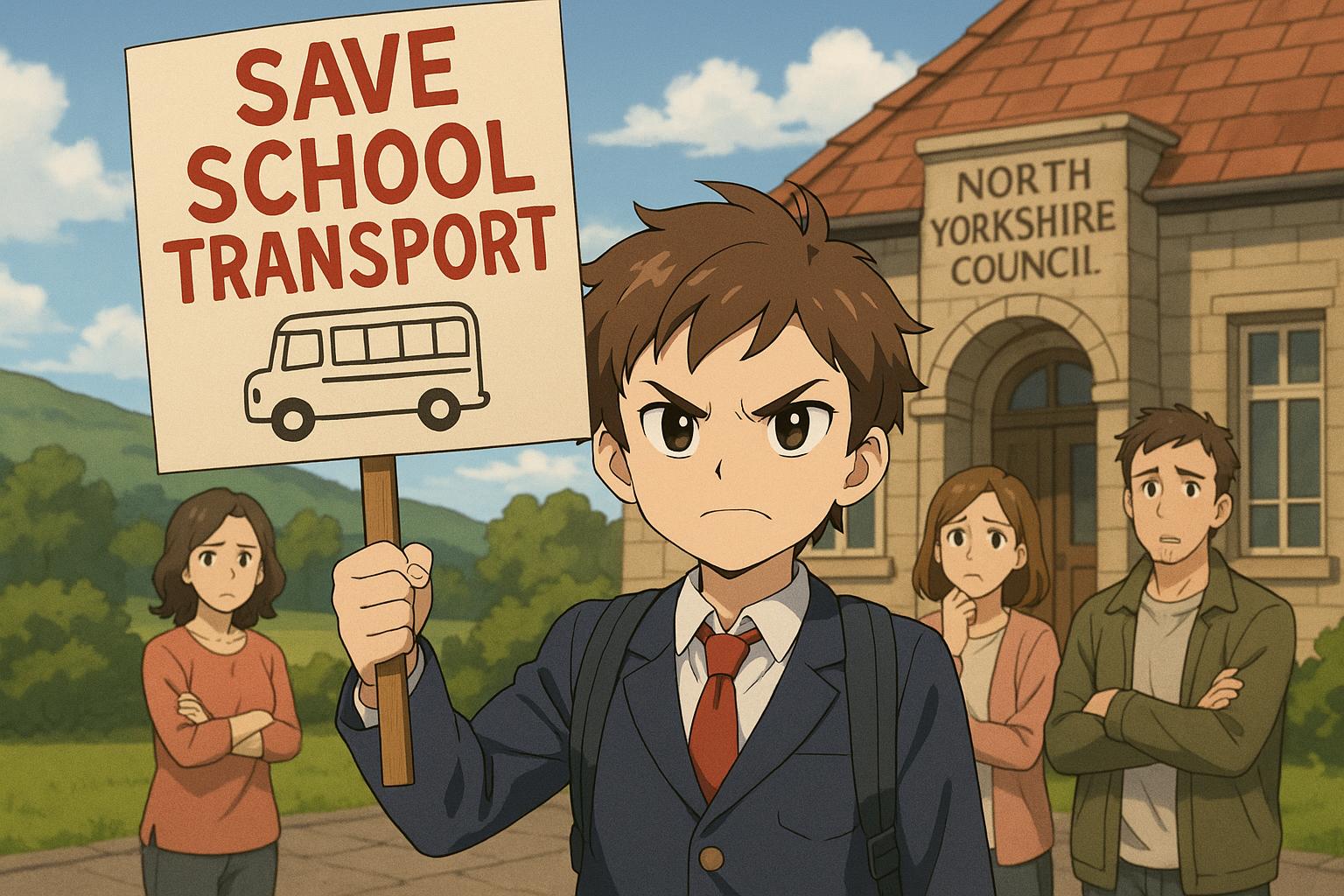Campaigners are escalating their opposition to North Yorkshire Council's recent overhaul of its home-to-school transport policy, arguing that the motivations behind these changes highlight a priority for the council to “save face” rather than achieve any real financial savings. As the council gears up for a crucial vote on whether to revert to the previous catchment area system, tensions are flaring between local authorities and families, underlining deeper concerns about the implications for children’s education across North Yorkshire.
While council leadership claims the new "nearest school" system will enhance financial management and purportedly save £4.2 million annually, critics from the School Transport Action Group (STAG) have voiced strong dissent, insisting that even the council’s own leaders privately acknowledge that these promised savings are little more than wishful thinking. Detractors assert that shifting to the nearest school policy will only deepen the inequalities that the previous system worked to address, throwing vulnerable communities further under the bus.
Voices of dissent highlight that the new policy, enacted after a July decision last year, is more about the council's unwillingness to confront their earlier financial miscalculations than actual fiscal responsibility. A spokesperson for STAG lamented, “All we can hope for is that enough councillors prioritize the community’s needs over party allegiances and do what’s right for North Yorkshire’s children.” This sentiment underscores that the stakes transcend mere political commitments, resonating deeply within the community striving for equitable access to education.
Council leader Carl Les defended the decision, suggesting it stems from a focus on financial sustainability. “This does not mean forcing children to attend their nearest school; it only aims to alleviate the taxpayer’s burden regarding parental choice," he asserted. However, many remain skeptical about the sincerity of such claims, particularly given that the policy changes are set to be phased in, potentially causing disruptions for families in the meantime.
Concerns persist, especially in rural areas where families already struggle with accessibility to education. North Yorkshire Council currently shells out around £50 million each year on school transport, and while leaders argue that financial strains necessitate these reforms, critics pinpoint the distressing geographical realities that could exacerbate existing challenges. Baroness Harris of Richmond recently voiced these concerns in the House of Lords, emphasizing that the council’s new policies disregard the unique difficulties faced by families in rural communities.
With the upcoming vote drawing near, both supporters and opponents of the policy are rallying their allies. Recent seminars held by council officials attempted to illuminate the potential ramifications of reverting to a catchment-based system, with reports warning that such a decision could lead to increased reliance on council reserves and resurface prior disparities in access to school transport.
Parents and campaigners are organizing a protest ahead of the extraordinary council meeting to vocalize their dissatisfaction with the current policies. The council has opted for a live stream of the meeting, allowing those unable to attend in person to both witness and engage in what should be a robust democratic debate.
As school transport persists as a vital issue for families in North Yorkshire, the forthcoming council meeting stands to reveal not just the council’s true priorities, but the extent to which local governance can balance the cynical demands of financial imperatives against the stark realities of educational access for children in their community.
Source: Noah Wire Services
